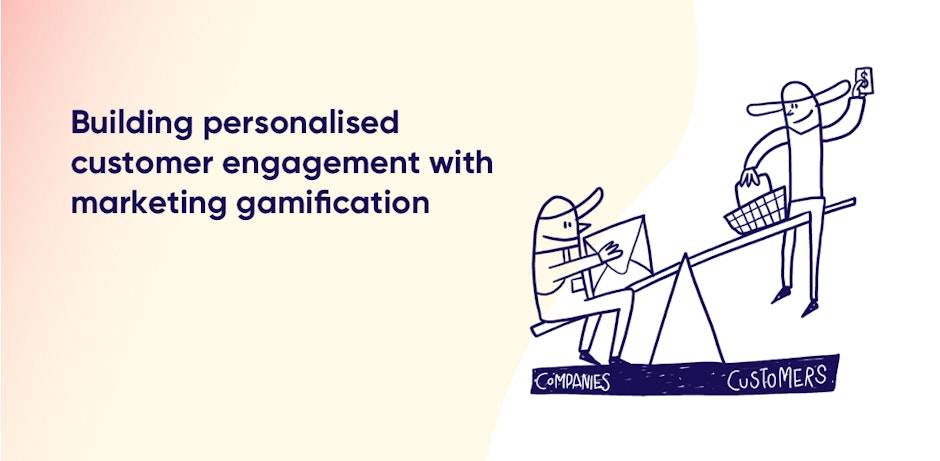Building personalised customer engagement with gamification
Our role as marketers is becoming ever more difficult and complex

With our competitors being only one click away, we need to find authentic ways to engage our audience, gather data and use that data to deliver a better experience. Harvard Business Review found that well-executed hyper-personalisation can deliver 8x the return on investment on marketing spend, and lift sales by 10% or more.
In interactions with their audience, marketers need to remember to offer value when they ask for any information. As consumers, we unconsciously calculate the cost and benefit in a privacy calculus, so if marketers prioritise building a long-term relationship, they should keep this front of mind.
Consumers are fickle (and have every right to be)
Businesses must find ways to differentiate themselves and the experience they provide if they want to capture consumer attention, win share of wallet and beat out their competition. A key way to do this is through providing a more personalised experience for their audiences. Salesforce found that 84% of consumers say being treated like a person, not a number, is very important to winning their business. But we all know that personalisation is driven by data and that’s the sticking point.
I don’t think it is too controversial to say that today we, as brands, have lost the trust of consumers. We have spent years capturing data from our audiences with little or no value exchange or transparency. Regulations have driven change, but the bottom line is that we are struggling to know how to capture the data needed to provide personalised experiences in the right way. However, we can do this by creating authentic experiences that engage and delight them by offering the right value exchange. And if we can do this, we start to create a wonderful infinity loop, where consumers engage more willingly and frequently, providing brands with greater insights, allowing for even more personalised experiences.
That’s the theory, but consumers are humans so there is naturally going to be contradictions. Research by SmarterHQ found that 79% of consumers surveyed believed companies knew too much about them, yet 90% were willing to share behavioural data for a cheaper and easier brand experience. Go figure!
Trust is the key to gathering data
So how as marketers can we navigate this dichotomy? By changing the way we engage with our audiences and providing them experiences that both engage and delight. If you can do this, in a way that is also open and transparent, then we will build trust, engagement and enjoyment will increase and permission based data will flow. Using game mechanics provides a unique and proven way to do just that.
Scandinavian fashion brand Masai did this with a personality test that helped respondents learn about their body shape. Masai then used the data to make decisions about retail and wholesale planning, insights about purchase intentions, and insights about body type ensured a data-driven design and product development process.
The benefits marketers receive
It is proven that greater personalisation in the customer experience and journey is good for business. Google and the Boston Consulting Group found that when experiences are highly personalised, customers indicated they are more than twice as likely to add items to the basket and 40% more likely to spend more than planned.
Gamification can help marketers understand their customers on a deeper level. According to Deloitte, connecting meaningfully with your audience begins with hyper-personalisation. That the key to understanding your audience and to activating them lies in gathering behavioural, psychographic, geographic and demographic data. By providing a valuable experience or relevant offering through gamification, brands are able to gather insights around attitudes, opinions, preferences, values and of course products they would buy. This insight becomes the foundation of better customer experience and engagement, leading to loyalty and trust.
Gamification in marketing helps us work smarter in service of our customers and our businesses.

